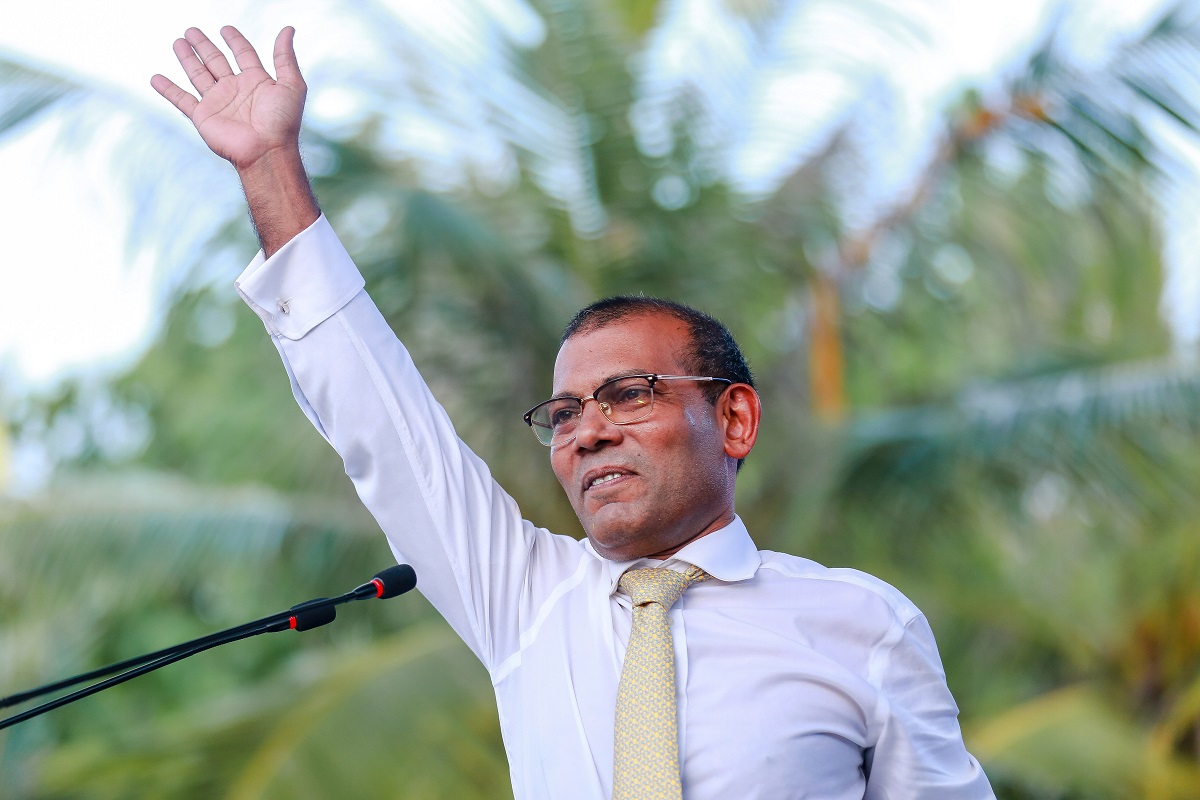The dramatic has happened in Maldives via an election, the bedrock of democracy. Sunday’s vote has yielded a spectacular triumph of democracy in the Indian Ocean archipelago. Mohamed Nasheed and his Maldivian Democratic Party has scored a historic landslide victory; his former deputy, President Ibrahim Mohamed Solih, has trounced Abdullah Yameen.
The astonishing outcome cannot but have an impact on India’s diplomacy not the least because of the struggle with China for the mastery of the island. China had invested millions of dollars during the pro-Beijing Yameen’s rule as part of its Belt and Road Initiative. The flux has been evident since last September when Solih had unseated Yameen.
The MDP, which has helmed a coalition with three other parties, has warned that a building boom has saddled Chinese leaders with huge debts. Intrinsically, therefore, last weekend’s tryst with democracy was riveted to the trilateral geopolitical construct. The overwhelming support for Nasheed and Solih has been reaffirmed. On closer reflection, it has been a double sundae; Sunday’s spectacular triumph follows Solih’s resounding victory in the presidential election last September.
As it turned out, his agenda was partially impeded because some of the MDP’s allies in the governing coalition are aligned with his rival, Yameen, who has been widely accused of corruption and repression. The Maldives, a cluster of islands to the south-west of India, has traditionally been at odds with India’s influence.
Yet it also stretches across maritime routes that are crucial to China, which has recently spent hundreds of millions of dollars on infrastructure projects in the Maldives.
The psephological swing is bound to bear on the economy and geostrategies of India, China and also, of course, tiny Maldives. Misgivings that the government in Male might be a victim of “debttrap diplomacy” are not wholly unfounded; it might well be under pressure to offer security concessions to China as repayment for large loans.
Hence the warning by the West and India that increasing dependence on China could be a threat to the stability of Maldives. Both Nasheed and Solih will now be expected to effectively steer through the choppy waters that skirt the archipelago, verily a conjunction of geography and maritime rivalry.
Some politicians, as well as Western and Indian diplomats, have warned that increasing dependence on China could be a threat to the country’s sovereignty. The thumping victory of the MDP has capped a remarkable comeback for Nasheed, who until November was a fugitive in exile.
He was sentenced to 13 years in prison in 2015, but left the Maldives a year later after being granted “prison leave” fror medical treatment in Britain. It has been a broad jump from the prison to the presidential palace in Male. And he has only the people of his country to thank.











